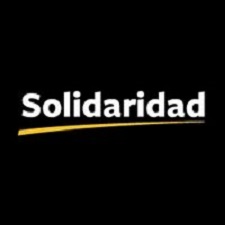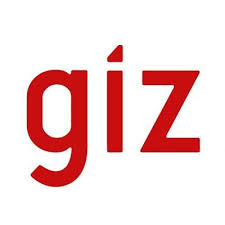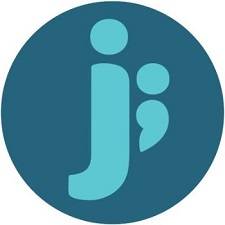🇸🇱 Job Vacancy @ Solidaridad West Africa (SWA) – Consultant for the Development of a National Oil Palm Value Chain Policy and Implementation Plan
 Job Description
Job Description
Government of Sierra Leone
Ministry of Agriculture
CONSULTANT
Recruitment of a consultant for the development of a National Oil Palm Value Chain Policy and Implementation Plan
Project Background and justification:
The demand for palm oil globally remains strong and has the potential to increase despite current volatility in the sector. This sustained demand provides the opportunity for Africa to transform the agricultural sector into an engine for socio-economic development and growth. Oil palm has pioneered world-class palm plantation and processing business in Africa through an innovative joint venture with the states, the local and foreign partners.
(adsbygoogle = window.adsbygoogle || []).push({});
While traditionally oil palm development has been centered on Asia, particularly in Malaysia and Indonesia, it is important to note that Africa, including Sierra Leone, offers a unique blend of available land, rural labour, and an existing market that is currently serviced through imports. These attributes are in contrast to other more established palm-growing centres where both land banks and availability of trained labour are constrained. Sierra Leone is both a potentially attractive supplier and a significant market for palm oil.
Vegetable oil consumption is increasing, of which about 75% is palm oil, and consumption is expected to grow. Already, there are very few businesses that process palm oil into vegetable oil in the country. Sierra Leone stands out as a unique opportunity for oil palm production, processing and marketing. For the country to maximize this potential, the Ministry of Agriculture in Sierra Leone is in the process of developing a National Oil Palm Value Chain Policy and Implementation Plan, and Act and Regulations that will guide the process of production, processing, and marketing.
. The policy, policy instruments, and strategic/implementation plan will provide the enabling environment for investment in the sector. It will also ensure that the government commits to providing a considerable amount of land (in most cases deforested lands) as a sustainable land bank to attract agricultural development. It will also provide the opportunity for public-private joint venture agreement with the government of Sierra Leone to develop the sector. Investors will be encouraged to plant recommended high yielding varieties, which upon reaching full production yield of up to 24 metric tonnes of fresh fruit bunches (FFB) per hectare and 5.2 metric tonnes of oil per hectare. The potential for the production of palm kernel oil and bio-energy from the palm kennel will also be exploited as well. Investors will also be encouraged to include palm oil mills and related assets in their investment portfolio. The policy, policy instrument, and implementation plan will make provision for research and development in the investment portfolio of investors to ensure sustainability in their business plans.
How to apply: All applications including curriculum vitae should be submitted via email to
skamara@yahoo.com
or by hand to the Office of the Director of Crops 2nd floor Youyi Building, Brookfields, Freetown, Sierra Leone.
Deadline for submission of the application is 4.45 pm close of day November 30th 2022.
The terms of reference for the consultancy is listed below:
TERMS OF REFERENCE – Non-Key Expert
Expert in Oil Palm Policy
| Project Name | Sierra Leone Oil Palm Value Chain Policy |
| Implementing Institution | Sierra Leone Ministry of Agriculture |
| Mission Title | Formulation of Oil Palm value chain policy that will provide the framework and strategic direction to govern and regulate the development of the oil palm industry in Sierra Leone. |
| Background | Despite the huge potential for oil palm production/export, the oil palm sector is neither structured nor organised in Sierra Leone and there is little information and strategic orientation in the sector. In that regard, the formulation of the oil palm policy is a necessary step to enhance the oil palm value chain for a better competitiveness and increase of palm oil exportation. This could be done through a literature review, interviews and focus group discussions, consultation with public and private stakeholders and actors as well as independent development practitioners and NGOs. |
| Description of Tasks
| Under the overall supervision of the Chief Agriculture Officer, the consultant will work in close cooperation with the Ministry of Agriculture (MoA). The expert shall consult through interviews and focus group discussions, PCU technical staffs (Crops and Tree crops Division), National Oil palm Platform Technical Working Group, Ministry of Trade and Industry (MTI), Produce Monitoring Board (PMB), Sierra Leone Standards Bureau (SLSB), Farmers, producer groups, processors, Private Sector, Civil society organizations and other interested parties that may be provided by MoA, to realize the following goals: General tasks – Conduct a general assessment of the oil palm sector, from the perspective of government / MoA (as principal service provider), small scale tree crop farmers, NGOs and the private sector (including planting material and seedling suppliers, private nurseries, Oil palm traders, small processing enterprises, etc.) to identify policy deficiencies (the formulation of comprehensive and policies being a necessary requirement for the enhancement of the oil palm value chains, with respect to improved productivity, greater competitiveness and increased oil palm exports); through ⮚ a) In-depth and detailed review of available literature (reports, studies, draft policies etc.), ⮚ b) Interviews with MoA officials and focus group discussions with other stakeholders, ⮚ c) Contact non-state actors operating in the oil palm sectors, such as World Bank – Smallholder Commercialization and Agribusiness Development Project (SCADeP), Oil Palm technical Working Group and the private sector Goldtree Holdings Ltd, Socfin Agricultural Company, interviews with farmers / plantation owners at village level to better understand their individual situations. – This will be conducted through: o Elaboration of a detailed work plan and task methodology in concert with the National Oil Palm Technical Working Group and MoA-PCU technical staff. o Review of secondary data / literature (reports, surveys, studies in oil palm value chains, sector organization policies, master plans and strategic documents, varieties cultivated, intercropping management, agroforestry, improved harvesting /processing/storage methods, tree crops training and services, certification, trade and marketing), from Sierra Leone and from other (similar) African countries such as Nigeria, Côte d’Ivoire, Ghana, Tanzania, Benin, etc. o Preliminary interviews with key stakeholders in Freetown – MoA /Sierra Leone Agricultural Research Institute (SLARI), NGOs, private sector, farmers’ organisations, etc.) to collect all information related to oil palm sector regulation. o Design of an assessment guideline and questionnaire to conduct a quick field survey for the collection of data related to oil palm production, processing and trade. o Field mission to major oil palm production rural districts to conduct the survey and interview key stakeholders especially farmers (individuals, cooperatives, unions), opinion leaders and experts in the industry. – Collect and analyse existing and similar Policies in other African countries, and more specifically in Nigeria, Benin, Ghana and Ivory Coast, all being major producers of oil palm with advanced experience in the sector organisation. And according to findings and interviews, to revise and finalise policy documents adapted to Sierra Leone context and oriented on future development perspectives of the oil palm/ sectors. – Adjust and review the already existing drafted document for the Oil palm sectors providing not only an overview and analysis of the whole value chain but also a medium-long term master plan for the development of the Sierra Leone oil palm industry with clear strategic goals and objectives.
● Targeted thematic areas to cover by the Policy Document: ✔ Production ✔ Processing, Refinery and Packaging ✔ Value addition ✔ Marketing and Distribution ✔ Research and Development ✔ Sector Organization and Regulatory Regime ✔ Cross-cutting Issues
Specific tasks i) Analyse the existing national and regional agriculture policy and regulatory framework
– Identify all policies and aspects of the regulatory framework that has an impact on the Oil palm within the agricultural sector and within other sectors. This may include national, regional and international policies and legislation. – Conduct an analysis of the implications of the policies and regulatory framework on the tree crop sub-sector policy.
ii) Analyse existing relevant policy and legislative tools used at national and local levels to support the tree crops sub-sector
– Examples of such tools would include guidelines for commercial farmers; mechanisms for promoting “agricultural tree crops,” newly approved cocoa, coffee, cashew policies, projects, environmental impact assessment, life cycle assessment, amongst others. – The analysis would also include considerations of marketing and land tenure-related policy and regulatory framework. – Identify where such tools have been successfully developed and used within other countries in the West Africa region, critically assessing potential opportunities for adapting and applying similar tools in Sierra Leone.
iii) Assess and analyse needs, and propose options
– Assess and analyse existing improved nursery sites or gardens in relation to the availability of improved planting materials. How previous interventions contributed in upgrading the local dura variety by providing the required planting materials currently needed by the farmers. – Assess, analyse and provide options for integrating a tree crops policy into government policies including, as applicable, agricultural, development, conservation, land use, commercial farming and other key impacting policies. – Analyse operational and technical capacities at national and local levels, and identify gaps and capacity building needs – this would be also undertaken in light of the expected output of establishing a national cross-sector oil palm, Cocoa, Coffee, Cashew coordination mechanism at policy making level with a strong value chain analysis component. – Identify and assess priority areas and alternative strategies for institutional strengthening of relevant institutions (including extension services).
iv) Prepare technical report
– Guided by the NMTDP, NSDAP-CAADP, Sustainable Development Goals (SDG) 1 & 2, prepare a technical report assessing the policy and regulatory framework; capacity needs and institutional strengthening requirements for a conducive oil palm policy environment; identification of appropriate tools for mainstreaming the oil palm into national policy. v) Perform the following tasks:
⮚ Elaboration of a detailed work plan and task methodology. ⮚ Data collection (as noted above, through a document review, interviews – using an assessment guideline and questionnaire to conduct a quick field survey – and meetings, inclusive the convening of stakeholder workshops at district level. ⮚ Interpretation / analysis of data using standard and easy to use computer programmes (preferably operated with open-source software) and compilation and publication of a report containing a detailed / deep analysis of the current status of the oil palm sector with recommendations. ⮚ Organisation of validation workshops in the Eastern, Northern, Northwest, Southern regions and in the Western Area, to present major findings to MoA, MTI, MLHCP, NAO, SLARI, PMB, SLSB, and other interested parties and to agree on the proposed intervention strategy that will promote the sector. ⮚ Analysis of field study and validation workshop results and synthesis in a final report containing recommendations on a) potential tree cash crops diversification and intercropping options b) how to further promote the role of the private sector in value chain development. ⮚ Production of an abridged version of the validated policy document for roll-out. ⮚ Provide the post -policy implementation strategies in collaboration with the policy officers and Ministry of Agriculture (latter according to the principles of Results Based Management).
|
| Operational Modalities | The (possibly International) Senior Expert will work with another Senior Expert specialised in Oil Palm, and a National (Sierra Leonean) or regional Expert will join the Team. One National Expert will be also appointed by the MoA Crops Division. The status of this Expert will be subservient to that of the Expert and the National Expert / MoA representative will adhere to and will help to achieve the successful completion of the detailed work plan and task methodology mentioned in the “Description of Tasks” above. The National Expert will be supported with travelling allowances / per diems, at accepted government rates, financed from MoA. The budget committed to the assignment will also include the cost of all field activities (excluding team transport) to be conducted by the Senior Expert in the discharge of his / her tasks. For example, the cost of district-level consultation workshops, printing of questionnaires and handouts, the cost of the validation workshop etc. Expenses incurred in the implementation of the assignment will be managed together by MoA staff member, consistent with GoSL procedures and the TAT staff member will not, unreasonably, withhold financial support from the Senior Expert where the proposed expenses relate to the published and agreed work plan, task methodology and activity budget, which will have been submitted to the MoA for prior approval. The Expert will work with but independent from the MoA to provide objective advice. The mission chronology will comprise: o Elaboration of a detailed work plan and task methodology in concert with MoA and the TWG. o Review of literature / secondary data (reports, surveys, studies of the oil palm value chains, crop varieties cultivation trials, tree cash crops diversification proposals, intercropping trials, agro-forestry pilot activities, improved harvesting / storage / processing techniques, tree crop-related training needs, certification, analysis of trade and marketing constraints), from Sierra Leone and other (similar) African countries. o Preliminary interviews with key stakeholders in Freetown (MAF / SLARI, MTI, PMB, SLPMC, SLSB, SLIEPA, NGO service providers, private sector, farmers’ organisations, etc.). o Design of an assessment guideline and questionnaire to conduct a quick field survey (if required), for the collection of data related to production and trade. o Field mission to the 15 rural districts (all agricultural districts) to conduct the survey and interview key stakeholders, including farmers, traders and SLARI technical / research personnel. |
| Projected Starting Date | December 2022 |
| Deliverables | – Brief Inception Report, comprising a work plan and methodology; data collection tools / sample questionnaire (as required). – Report on District-level consultative, stakeholder meetings in the 15 rural districts. – Draft report on the formulation of oil palm value chain policy that will provide the framework and strategic direction which will govern and regulate the development of the oil palm industry in Sierra Leone through a literature review, interviews and focus group discussions with stakeholders including public and private actors as well as development projects and NGOs. The report must contain chapters on the general and specific project background; objectives of the MoA and priority issues; findings with respect to key strategic aspects on the sector policies, pertinent actions plan and activities to promote the sectors, role of the private sector and conclusions and recommendations – PowerPoint presentation of key findings and recommendations. – Stakeholder validation workshop for oil Palm with the MoA, MTI, EU, NAO, PMB, SLSB, NGOs, Farmers, Processors, Refineries, SLPMC and other relevant parties in all 4 regions and the Western area. |
| Terms of Delivery of the Mission Report | Six (6) printed and bound, hard copies each of the main policy and abridged policy and 1 electronic copy each of the main and abridged policy on a flash disk delivered to MoA, 2nd Floor, Youyi Building Freetown. |
| Position Title | Non Key Experts: Policy and Legislation (Oil palm Specialist) |
| Job Profile | Minimum qualification requirements: ● Master’s or Doctoral degree (or equivalent) in Development planning, General Agriculture or related fields (e.g., agroforestry, agricultural economics, farm economics), or similar. ● Minimum of 10 years’ experience in policy design, analysis, implementation or M&E of tree cash crops programmes (with a focus on oil palm), processing and value addition, trading, certification or cooperation with rural farmers / stakeholders, preferably in Africa; ● At least five (5) years prior experience in management or monitoring oil palm programmes and / or familiarity with tree cash crop programmes in West Africa and in particular in Sierra Leone; ● Solid experience of agricultural policy issues, planning and monitoring of projects / programs ● Good knowledge of the value chain approaches and concepts, in particular that concerning the oil palm sector; ● In depth knowledge of development programmes and policies in West Africa; ● Existing knowledge of and experience in sustainable agriculture, agro-forestry, tree crops diversification, climate change adaptation and intercropping of tree / food crops; ● Good analytic and report writing skills; ● Professional knowledge of the English language with strong oral and written communication and presentation skills; ● Knowledge of the country context (Sierra Leone) preferred; ● Knowledge of local languages (Krio) is an asset. |
| Number of Days of Benefit for the Expert | The duration of the mission is estimated to be at most 6 weeks, broken down into eight phases, as follows: – Document review: – Planning, preparation of methodology and tools: – Contact and interviews with MoA officials including SLARI and focus group discussions with stakeholders (TWG, Gender, MLHCP,MoE etc) in Freetown: – Field mission phase and collection of data (district-level stakeholder workshops): – Data analysis and report writing: – Power Point presentation of the report: – Facilitation of validation workshop: – Writing of Final report and submission: |
| Application Submission | CV (in standard EU/WB format) and copies of supporting documentation, e.g. academic certificates and transcripts / references and testimonials, in hard copy and soft, captioned “NKE Tree Crops (Oil palm Specialist)”, addressed to MoA, Freetown. Or via an email to be provided CVs will be evaluated and vetted by the TWG/MoA.
Consultant is required to submit a narrative and financial proposal detailing their understanding of the ToR, detailed work plan, key staff or personnel for the task, track record of delivering similar assignments. |




